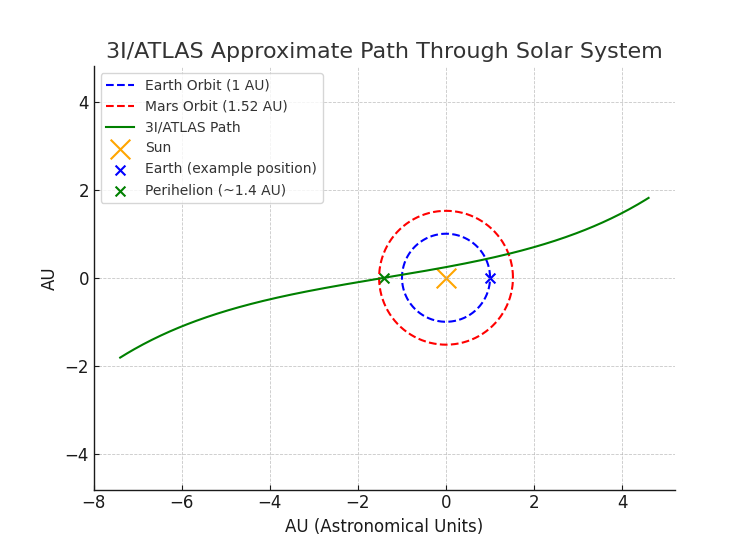
Interstellar Comet 3I/ATLAS Speeds Through the Solar System – No Threat to Earth
Aug 11, 2025 7:04 AMAstronomers have confirmed the discovery of 3I/ATLAS, a rare interstellar comet currently passing through our Solar System. Detected on July 1, 2025 by the ATLAS observatory in Chile, it is only the third confirmed interstellar object ever observed, following ʻOumuamua in 2017 and 2I/Borisov in 2019.
A Visitor From Beyond Our Solar System
Unlike ordinary comets that originate in the outer regions of our Solar System, 3I/ATLAS was formed in another star system and entered our space on a hyperbolic trajectory. This means it will pass through once and never return.
Current observations indicate that the comet will reach its closest approach to the Sun (perihelion) around October 29–30, 2025, at a distance of about 1.4 astronomical units (AU) – slightly inside Mars’s orbit. It will remain far from Earth, with its closest distance to us being approximately 1.8 AU (about 270 million km). Scientists confirm it poses no danger to our planet.
Record-Breaking Speed
Traveling at nearly 209,000 km/h (130,000 mph), 3I/ATLAS is one of the fastest-moving comets ever recorded. Its speed and unusual orbit confirm its interstellar origin.
Composition and Age
Spectral analysis reveals that 3I/ATLAS contains water ice, dust, and hydroxide gas (OH). Water production rates are estimated at 40 kilograms per second, and emissions have been detected even at large distances from the Sun.
Scientists estimate the comet’s age to be between 3 and 14 billion years, possibly making it the oldest comet ever observed.
Alien Hypothesis – A Controversial View
Harvard astrophysicist Avi Loeb has suggested the possibility that 3I/ATLAS could be an engineered object from an advanced alien civilization. However, most astronomers agree that it is a natural interstellar comet, with no evidence of artificial origin.
Why It Matters
Studying 3I/ATLAS provides valuable insights into the formation and composition of small bodies in other star systems. Each interstellar visitor offers scientists a rare opportunity to compare materials from different parts of our galaxy.
Your Comment about this News...